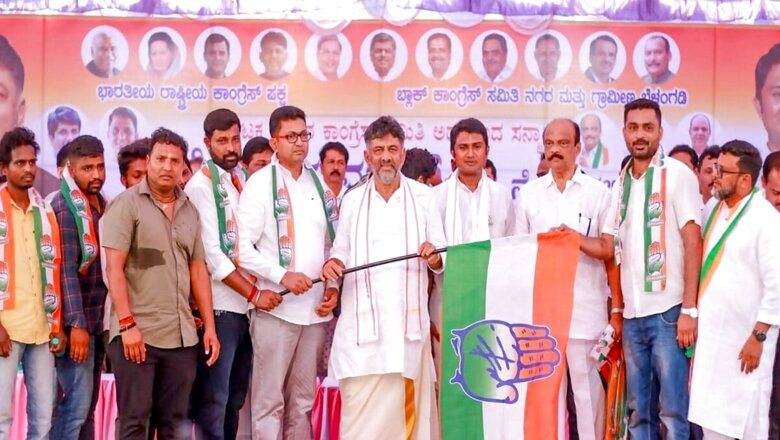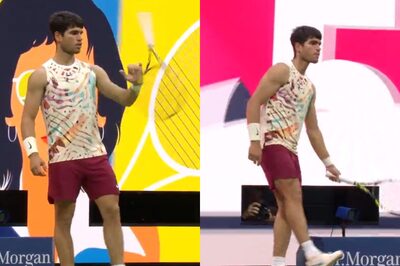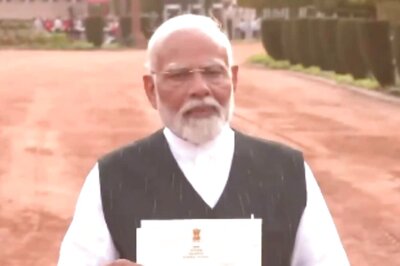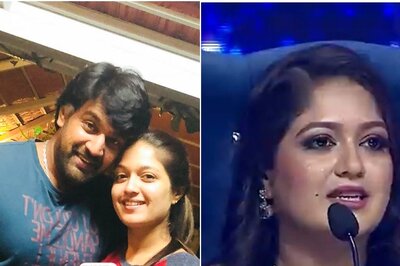
views
The Congress has the highest stakes in poll-bound Karnataka; the compulsion to prove itself to potential allies ahead of the 2024 general elections, save face for Congress president Mallikarjun Kharge in his home state and vindicate Rahul Gandhi’s Bharat Jodo Yatra has lent an edge to its campaign. Prima facie, the party has the advantage over a Bharatiya Janata Party (BJP) battered by defections and anti-incumbency, but the contest may be a lot closer than it looks, and fears of a hung house are justified.
On paper, the Congress appears to have built up a powerful social coalition. But a superstructure of prominent leaders from influential and numerically strong communities does not necessarily translate into votes on the ground. For example, the Congress’ expectation that BJP defectors like former Chief Minister Jagadish Shettar and former Deputy Chief Minister Laxman Savadi would help the party make inroads into the electorally influential Lingayat community, is likely to be belied. Neither has much clout beyond his own bailiwick.
That said, the BJP’s electoral strategy is hard to decipher. A radical Gujarat-style makeover of the party was expected to beat anti-incumbency. But the revamp proved to be far less drastic than expected, with less than a quarter of the sitting MLAs dropped. In effect, there was more continuity than change. And unlike Gujarat, where ticket distribution was dissension-free, leaders who were dropped, rebelled, with at least ten migrating to the Congress or Janata Dal(S).
The BJP’s hopes are pinned on retaining the Lingayats, who influence outcomes in 70 seats. Under former CM BS Yediyurappa — arguably the state’s tallest Lingayat leader — the BJP has consistently received the backing of the powerful Lingayat mutts. Nor has it left matters to chance this time, setting up a Veerashaiva Lingayat Development Corporation, promising a two percent increase in reservation and appealing to the community’s sentiments by erecting a statue of the Lingayat seer, Akkamahadevi, in Shikaripur (where Yediyuruppa’s son is contesting).
The importance of the Lingayat vote is reflected in the enhanced seat share for the community by all three contenders: the Congress has allocated 51 seats, the BJP 67 and the JD(S) 44. Efforts to split the Lingayat vote by playing off one subsect against another have not borne fruit, and Congress leader Siddaramaiah’s remark on “corrupt Lingayat CM” has annoyed community leaders.
The main battleground, however, is the Vokkaliga-dominated Old Mysuru region, which contributes the maximum number of seats to the Assembly. If the Lingayats wield clout disproportionate to their actual numbers, so do the Vokkaligas. Seeking to challenge the JD(S) hold on the Vokkaligas, the BJP has gone the extra mile. It has set up a Vokkaliga Development Board, unveiled a statue of the community’s iconic leader, Kempegowda, and promised an additional two percent quota. It has also given tickets to 42 Vokkaligas, as opposed to 34 in 2018.
The Congress has the advantage of a powerful Vokkaliga leader in DK Shivakumar. He is well aware that the outcome of the election (and his political career) will depend on whether the JD(S) holds on to its traditional vote base and gets enough seats to emerge as the kingmaker.
The Congress’ ‘AHINDA’ (Muslims, OBCs, Dalits) social engineering model technically covers the bulk of the state’s population. With Kharge as the party’s Dalit face and Siddaramaiah as its OBC strongman, the party should be home and dry. But Kharge does not enjoy a pan-Karnataka influence and Siddaramaiah’s clout among the OBCs is largely within his own Kuruba community. Besides, the BJP has focused strongly on SCs, STs and OBCs.
Caste matrix apart, the main issue likely to influence voting behaviour is corruption — a huge millstone around the BJP’s neck. In 2021, the contractors’ association in the state publicly claimed that ministers expected a 40 percent cut in all government projects, giving rise to the Congress’ ‘PayCM’ campaign. By ordering an inquiry into the tendering process and releasing the contractors’ dues, CM Basavaraj Bommai defused the issue. The BJP also denied a ticket to the son of erstwhile minister KS Eshwarappa, accused of demanding kickbacks by a contractor who later committed suicide. The Congress campaign lost traction after the Karnataka High Court shot down DK Shivakumar’s appeal against a CBI probe into corruption allegations against him. But the residual impact remains.
While the focus has been on dissension within the BJP, the Congress is facing its own share of internal tussles and defections. Kharge claimed that the long-standing rivalry between DK Shivakumar and Siddaramaiah was on the back burner. But his remark that the Congress would have to win no less than 150 of 224 seats, or the BJP would ‘break’ it, belies the claim that his party stands united.
As of now, the BJP remains strong in Coastal and Kittur Karnataka, the JD(S) in Old Mysuru and the Congress in the Hyderabad Karnataka and Bengaluru regions. Bogged down by anti-incumbency, the BJP is more dependent on the ‘Modi magic’ than ever.
Karnataka has seen considerable political turbulence and three CMs from two different parties in the last five years. Given the hard-fought battle ahead, the best it can hope for is a stable government, be it under a single party or a post-poll alliance.
Bhavdeep Kang is a freelance writer and author of ‘Gurus: Stories of India’s Leading Babas’ and ‘Just Transferred: The Untold Story of Ashok Khemka’. A journalist since 1986, she has written extensively on national politics. Views expressed are personal.
Read all the Latest Opinions here



















Comments
0 comment